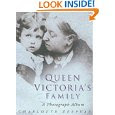An interviewer on a radio programme once asked a writer how she reconciled the maxim "write what you know", with all the horror described in her novels and which she clearly hadn't personally experienced. She replied that she took her own experiences which inspired emotion, magnified the emotion slightly and put it into whatever situation her novel required. I thought that was rather wonderful!
Basically, no matter what the external events, humans run the same gamut of emotions so, perhaps, every novel is to some extent autobiographical of the writers' experience and all humanity's experience.
I would like to include some excerpts from my novels, over the next couple of days, beginning with "The Counting House."
This is autobiographical only in as much as it tries to describe the emotions, fears, joys, anger and love of a child, which I believe are common to everyone's childhood. I have often felt that children, struggling into roles allotted to them by society, go through so much angst because they have not yet learned to voice or understand their deepest feelings and there is often no outlet for them to express these emotions. So often, confined by the mores of the family or school or society, children are compelled to hide their anger, their fears and their love. How many of us grow to adulthood with the unhappy, unexpressed child still lost somewhere inside and acting out childhood fears and anger in grown up bodies.
Georgie, the central character of "The Counting House", thinks in black and white when the novel begins. Everything is good or evil, heroic or weak, brave or cowardly. She feels terrible guilt for having 'stolen', from a cemetery lodge, a candlestick which she believes has led to her being cursed by the devil and condemned by God, When tragedy strikes the family that evening, she believes she is to blame and embarks on a bizarre quest to appease God and rid herself of the devil. As the book progresses she gradually comes to understand the 'shades of grey' in defining the nature of good, evil and accident.
This excerpt from the beginning of the third chapter, describes her fear not only of retribution from God, but also of her terrifying teacher, Miss Keppel:
"I am the Lord thy God who brought thee out of the land of Egypt and out of the house of bondage.”
While the boys made Plasticine models with plastic knives on small square boards, we sat like ladies-in-waiting around Miss Keppel’s desk, clicking our needles and quietly chanting the steady rhythm,
“In, wrap it round, pull it through, slip it off. In, wrap it round, pull it through slip it off.”
Miss Keppel moved among us uttering words of wisdom, “The devil finds work for idle hands. Always keep your hands and your minds busy!”
Her huge nostrils quivered as she surveyed the class, “Gerard Taylor, what is the first commandment?”
He answered without hesitation, “Thou shalt not have strange gods before me.”
“Go on,” she said.
We carried on knitting, “In, wrap it round, pull it through slip it off, in, wrap it round, pull it through, slip it off.”
“Nor any fish or,” he looked down and stuck his thumb into the squashy pink snail, “bird or graven image or any insect or anything.”
Miss Keppel’s great nose came down above him until his neck shrank into his shoulders. A swift hand clipped the top of his head, “For I, the Lord am a jealous God and I punish the father’s guilt in his sons!”
She spun around like a whirlwind, “Catherine Gould, the second commandment?”
“Thou shalt not take the name of the Lord thy God in vain.”
“In, wrap it round, pull it through, slip it off. In, wrap it round, pull it through, slip it off,” faster and faster, building up speed like a train.
I said the words but my hands were out of time. I said, ‘Slip it off,’ when I was wrapping it round and I knitted a hole where there should have been wool. Catherine Gould’s scarf grew longer and longer in a rainbow of bright colours. I wriggled the wool through my fingers, tying the loose ends in knots on the needles. The two rows that Miss Keppel had knitted to start me off grew greyer and greyer but the scarf never grew any longer.
Miss Keppel moved on, calling names at random, “Michael Donnelly, the fifth commandment.”
This week she was bound to come to me; I guessed that she would reach me with the seventh. She always omitted the sixth and the ninth and Gerard Taylor said they were rude. I looked them up in the Bible.
“Jessica,” I said, “what’s adultery?”
“Being cheeky to grown ups.”
“That’s not rude.”
“Being rude to grown ups then.”
Miss Keppel’s shoes squeaked over the wooden floor and her flowing skirt made a breeze as she passed. My fingers were damp and slipped over the huge plastic needles. I gathered the grubby grey wool on my lap and buried the scarf in my hands.
“Georgina Meadows, the seventh commandment?”
I felt the blood rush out of my face and my hand began to shake. I opened my mouth but no words would come.
“The seventh commandment, Georgina?”
She was standing in front of me, her long bony fingers entwined before my eyes. Her knuckles were red and inflamed and brown spots covered the skin.
I screwed the wool into a ball, “Thou shalt not steal.”
One by one her fingers untwined and stretched themselves like an eagle about to swoop on its prey. Her hand was cold when her skin touched mine, pulling the woollen ball from my knee. When she lifted it up her nostrils flared and her thin lips sank into her mouth.
“What,” she said, pausing between each word, “is this?”
I didn’t know if she wanted an answer so I bent down and pulled up my socks.
“Well?”
“Please may I do Plasticine next week?”
“Plasticine?” the word burst out like an oath.
“I can’t knit. My Mum can’t knit either. None of us knits in our family.”
Her dull eyes widened and her lips disappeared. She took the end of a thread in her finger tips as though it were an insect she could hardly bear to hold and with one sudden movement of her wrist, unravelled the whole creation and dropped it in a heap on my knee.
“You can’t knit? Then it’s time you learned. You’ll stay in at playtime this afternoon and every afternoon until you can"
The Original "Getting Real"

Please click on the picture to order this book.
Hilliard & Croft Books
Welcome to our blog!
Christina is represented by
Leo Media & Entertainment
We have many new projects currently underway and hope that you will enjoy our blog as well as our books and website:
Hilliard & Croft
Christina is represented by
Leo Media & Entertainment
We have many new projects currently underway and hope that you will enjoy our blog as well as our books and website:
Hilliard & Croft
Wednesday, 26 August 2009
Subscribe to:
Post Comments (Atom)
















No comments:
Post a Comment